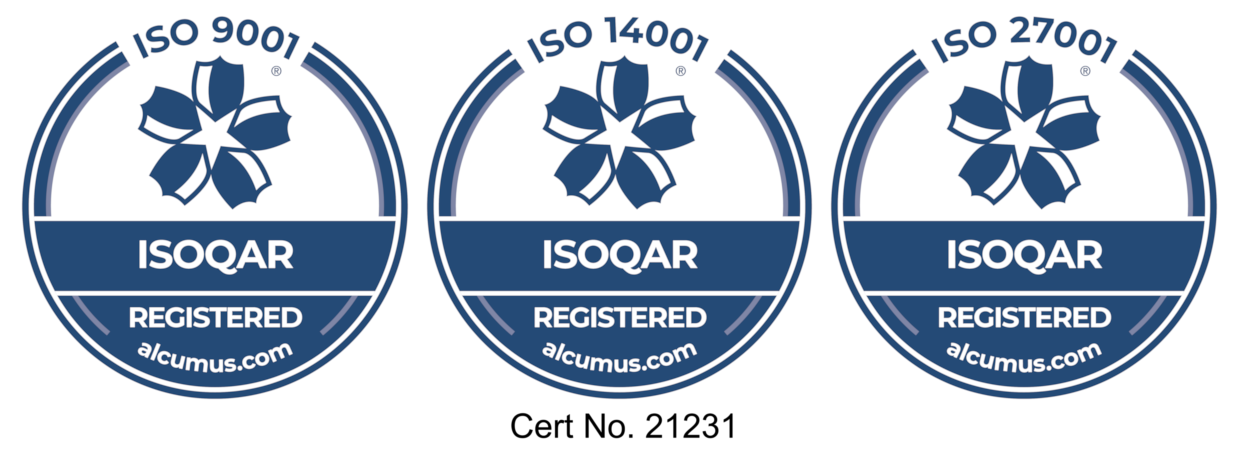The Government have finally published their draft Waste Batteries and Accumulators Regulations 2009. Following the consultation last Summer there have been a number of key changes which, if they remain, will have a significant impact on producers, retailers and the recycling sector.
The key developments are;
1. Neither industrial nor vehicle battery producers need join a scheme. However, producers of products containing batteries will be included.
2. Each compliance scheme is going to incur Government imposed fees of £166,000 to set up and £149,000 per year thereafter plus £5,000 per scheme member (who is not a small producer*) per annum.
3. They have defined a small producer as a manufacturer or importer who puts on the UK market less than 3 tonnes per year of portable batteries. Small producers will have to join a scheme but will not have to contribute to the cost of collection and recovery. The Government expect this cost to be born by the larger producers.
4. The de minimus level for retailers has been proposed at 16 kg of batteries placed on the market and a retail area of less than 280 sq metres. Below these levels the retailer will not be required to offer retailer take-back.
5. Batteries going into outer space will fortunately be exempt.
6. The Government have chosen a graded target level for annual recovery levels;
Year |
Target recovery level |
Mandatory |
| 2010 | 10% | |
| 2011 | 18% | |
| 2012 | 25% | yes |
| 2013 | 30% | |
| 2014 | 35% | |
| 2015 | 40% | |
| 2016 | 45% | yes |
7. The Government also plan to charge £2,590 per site to recover batteries. Exporters will also have to pay the same fee for each site abroad they wish to export batteries. As Lithium and NiCd are handled on the whole by two specific sites in Europe most recyclers will be paying the same fee three or more times.There is a reduced fee of £500 for annual volumes less than 15 tonnes.
8. The Government expect the schemes to take on the financial responsibility to promote collection via information campaigns (advertising) and cooperate with other schemes and the EA in producing a coherent message. No financial limit has been set but the collection performance of each scheme will be monitored and poor performance may lead to withdrawal of approval.
9. At the same time, the Government are amending the Waste Management Licensing Regulations to allow for the storage of up to 5 tonnes of lead acid batteries and 10 tonnes of portable batteries without a WM licence. At the moment this appears to exclude Scotland, where it may prove impossible to sell batteries legally in the absence of clear direction from SEPA.
10. Whilst it is not mentioned in the draft Regulations, BERR are stating that schemes will not be able to trade recycling evidence. With the interim targets for recycling not being mandatory there is no incentive to trade in the first 2 years. However, it does mean that schemes are exposed to the costs of being too successful in encouraging end user returns.
11. Retailers are duty bound to accept batteries of the same chemistry as those sold free of charge if the battery type (chemistry) is the same as those sold.
12. Schemes will be duty bound to accept all types of batteries free of charge both from retailers, collectors or the public.
Timetable
We can now guess at the timetable for introducing the Regulations as follows;
Date |
Event |
| May 2009 | Regulations are introduced |
| 31 May 2009 | Deadline for applications for scheme approval |
| 15 May October 2009 | Deadline for producer membership |
| 1 January 2010 | Beginning of first annual compliance period |
As a result of strong opposition to the high compliance costs outlined in the draft, it is possible there maybe further delays in the timetable.
What can we expect
If the Regulations are introduced as the draft is worded then it is probable there will be only one scheme. Whilst this is possibly not the intention of the Government, the figures virtually rule out any other possibility.
Now the financial implication is limited to portable batteries and the de minimus is 3 tonnes we can expect less than 50 obligated businesses. Two companies represent over two thirds of the total output. As for small producers the Government estimate 1,000 companies, we believe it will be nearer to 500 in the first year.
We can therefore estimate the costs of compliance as follows:
3 registered schemes
If we end up with 3 compliance schemes then the true cost of compliance will look something like this:
Item |
Cost |
| 3 application fees | £17000 |
| 3 annual scheme fees | £149000 |
| 50 member EA fees | £5000 |
| Total: £250,000 | |
| The Government earns £748,000 + £697,000 per year thereafter. | |
Scheme costs
Item |
Cost |
| 3 set up costs at £50,000 | £150,000 |
| 3 runbng costs at £80,000 | £240,000 pa |
| Launch promotion costs | £4,000,000 (BERR suggest £3-5 mill) |
| Public promotion estimated costs | £500,000 pa |
| Total: £5,638,000 | |
| yr1: £1,437,000/year thereafter |
Assuming small members will pay a share of the scheme costs (500 schemes members at say £500 each), then the cost per large member will average £107,760 in the first year, including the set up cost element of £4,020 and launch promotional costs of £80,000 per member. This is before we consider the all important costs of the collection and recycling of the batteries.
With typical collection and treatment costs across the sector running at around 2 pence per battery* placed on the market (est. 1 billion), the total cost of compliance by 2012 will exceed over £21 million a year or an average of £420,000 per producer pa.
*This costing is at odds with those outlined by BERR. In table 1 page 131 of the Evidence base they suggest a cost for collection, sorting and recovery of £3,018 per tonne ( 7.5 p per battery) in 2010 dropping to £1,062 per tonne ( 2.7 p per battery) in 2012, in contrast to Table 4, page 135 where they predict a cost just for collection at £10,000 per tonne (25 p per battery). Assuming a mixture of collection methods and variety of service providers our average of 2 pence per battery placed on the market, for collection and treatment is considered conservative. We have based our calculations on an average of 40 batteries per kg.
1 registered scheme
Compliance costs reduce to;
Item |
Cost |
| 1 application fee | £17,000 |
| 1 annual scheme fee | £149,000 |
| 50 member EA fees at £5000 | £250,000 |
| £416,000 | |
| The Government earns £416,000 + £399,000 per year thereafter | |
Scheme costs
Item |
Cost |
| 1 set up cost | £70,000 |
| 1 running cost | £100,000 pa |
| Public promotion estimated cost | £400,000 pa |
| Total: £986,000 | |
| yr1: £899,000 per year thereafter |
Assuming small members will pay a share of the scheme costs (500 schemes members at say £500 each), then the cost per large member will average £12,980 a year. More significant is the cost savings associated with having one national collection scheme rather than diluting efficiencies with competing schemes. Our own costing and experience clearly demonstrate the cost of collecting batteries, incorporated with our existing national fleet equates to a little below 1 penny per battery. Based on the estimate of 25,000 tonnes of batteries (40 batteries per kg) being placed on the market the cost will be around £10 million pa for the whole industry or an average of £200,000 per large producer. The substantial promotional costs of the launch, as proposed by BERR, will in large part be financed from the 1 pence battery recycling levy. The logic is simple: as the volumes and cost for recovery increase the need for promotion reduces. In the early months and years the targets are below the 25% basis level on which the costs have been based. It is our view the cost estimates set out by BERR in Table 1 page 131 are wrong and contradicted by their own evidence.
In summary having a single scheme will reduce total compliance costs, to the industry as a whole, by over £10 million per year.
No one likes a monopoly
It is hoped the Government can be persuaded to reduce the cost of entry and make it easier to set up a scheme. This way we will have more schemes competing to keep down costs, whilst not lumbering the industry with unnecessary bureaucracy and admin costs. Other member states have ended up with expensive monopolies, with members powerless to influence cost.
There is a solution. BatteryBack has been established as a not-for-profit organisation. If the Government proceed as they have indicated we propose inviting other waste management companies, manufacturers and retailers to take shares in BatteryBack Plc. No shareholder will have overall majority and the business will then contract collectors and recyclers on normal commercial terms. This of course will result in only one scheme but as this will be run simply as a contracting and compliance body for the members there should be no conflict of interest.
Below we have set out the proposed market offering of the service.
BatteryBack – A draft service for draft regulations
The aim is to achieve low cost compliance. Based on the summary of the latest draft Regulations we have set out the cost model we plan to offer the market.
As we have demonstrated the lowest cost option is to have one scheme set up as a not-for-profit business, effectively owned by the key stakeholders. The Scheme would then seek out the commercially best contractors for collection and treatment.
We do not wholly agree with the Government’s idea that the 50 larger producers should carry the cost of the whole sector. We therefore propose a simple cost model which better reflects the real costs.
Proposed BatteryBack membership cost structure
Micro producers (less than 1 tonne output pa)
Item |
Cost |
| Scheme joining fee | £300 |
| Annual membership fee | £800 |
| Total: £1100 | |
| Battery collection and recovery fees included. | |
Small producers (1-3 tonnes output pa)
Item |
Price |
| Scheme joining fee | £500 |
| Annual membership fee | £500 |
| Total: £1000 | |
| Battery recovery fee of 2 pence per battery placed on the market. | |
Large producers (over 3 tonnes output pa)
Item |
Price |
| Scheme joining fee | £2000 |
| Annual membership fee | £2000 |
| Total: £4000 | |
| Battery recovery fee of 1 penny per battery placed on the market | |
In the first two years the surplus revenue from fees raised will be used to promote battery collection or rolled over to the following compliance period to offset costs.
Retailers and registered collection points
The service will be entirely free, however, there will be a refundable deposit for BatteryCans. Currently there are 3 sizes of BatteryCan. Please refer to our website.
These costs are based on the current draft and our interpretation of the Regulations. Actual costs will be confirmed when the Regulations are issued. We anticipate this will be early May 2009.
BatteryBack is already offering free battery collection to registered WasteCare customers. There are already over 1,000 BatteryBack collection points throughout the UK
Sorted – £2000 and 1 penny per battery





